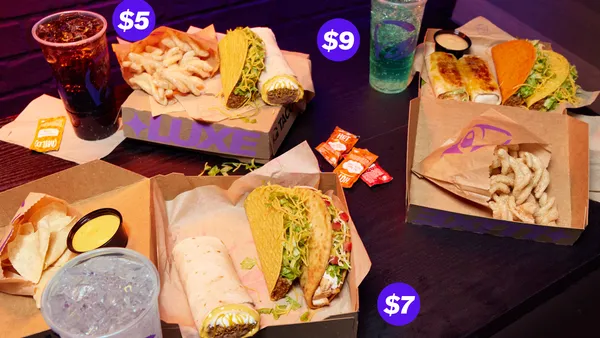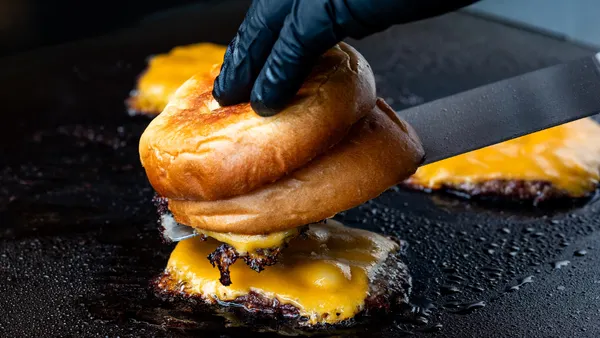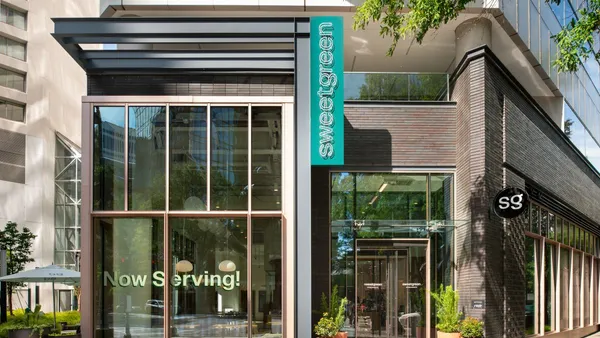Dive Brief:
- Sweetgreen has launched its own delivery-catering hybrid called Outpost, which will eliminate the need for its customers to use third-party delivery services such as DoorDash or Seamless during lunchtime, QSR magazine reported.
- The fast-casual salad chain has partnered with WeWork, Nike, Headspace, and MeUndies to debut its new drop-off locations. Employees of these companies can order Sweetgreen meals via the restaurant’s app or website, then pick up those meals at a designated location in their office buildings — without having to pay a delivery fee. Currently, Sweetgreen has 15 Outpost locations, but the company hopes that number will grow to 100 by the end of this year. By 2019, the restaurant expects to open 3,000 Outpost spots in offices, hospitals and schools.
- “It is part of our initiative to meet customers wherever they are,” Sweetgreen CEO Jonathan Newman said. “We’re always trying to make it easy and convenient to offer food that is healthy."
Dive Insight:
Investing in delivery is the latest tactic Sweetgreen has embraced to better meet consumer needs and build corporate partnerships.
The move follows a boom in third-party delivery companies such as Postmates, GrubHub and Uber Eats, as well as analyst predictions that 25% of restaurant sales will occur via online ordering within the next five years. But unlike chains that have forged partnerships directly with these delivery services — Yum Brands recently invested $200 million in GrubHub and Wingstop has teamed with DoorDash — Sweetgreen's Outpost system will give it full control of the customer experience it and help it leverage more high-profile brand alliances at the same time.
Outpost's value proposition also seems to cater to the top demands of today's diner: convenience, affordability and better-for-you meal options. The pick-up stations — which appear to offer a user experience similar to Sweetgreen's rapid pick-up shelves — reflect an evolving workplace culture as well, where time-strapped consumers are looking for lunch options that will minimize their time away from their desks. By bringing meals directly to their customer's workplaces, the salad chain gains a proximity advantage and also has access to a captive audience of consumers who have never tried a Sweetgreen salad or bowl before.
“People are saying that they love it, because it takes any of the friction of eating healthy away. Oftentimes, you want to eat better, but but it's hard to do,” Newman told QSR. By ordering their Sweetgreen meal to an Outpost, customers can also use their loyalty points, which isn't possible through most third-party delivery services.
The ease of ordering and pickup for consumers, and the fact that Sweetgreen doesn't charge participating companies to have an Outpost placed in their building, could be a powerful differentiator from competitors. But questions remain about how this system will work on a practical level, especially when it comes to food safety. It's unclear, for example, how the company will optimize the timing of preparation and delivery to ensure that the customer gets the freshest meal possible. The company also did not disclose how Outpost meals will be transported from restaurant to business, or if they will be refrigerated during transit.
Still, if this initiative drives a sales uptick and the company manages to scale the system to 3,000 locations by 2019, it could drive other fast-casual restaurants to adopt similar delivery-catering hybrids — which could prove to be disruptive for third-party delivery companies and the chains that rely on them.










